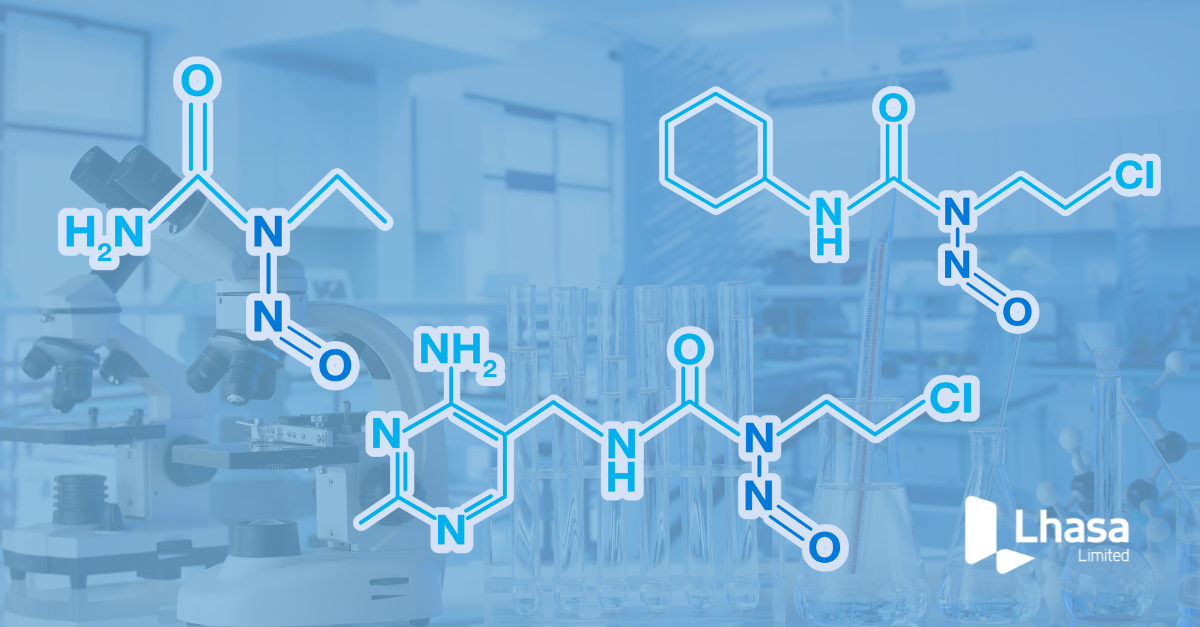We had a fantastic time at the 45th Annual Meeting of the American College of Toxicology (ACT 2024), held from 12 - 17th November in Austin, Texas.
ACT’s annual meetings embody their mission to “Educate, Lead, and Serve” scientists by providing a forum for exchanging information and perspectives on safety assessment and applied toxicological sciences. This year’s diverse program featured cutting-edge topics ranging from generative AI applications in drug safety to novel methodologies for impurity qualification.
We were thrilled to have a strong presence at the meeting, where we actively engaged with delegates through:
- An Exhibitor-hosted session
Our session “Setting Limits for Nitrosamines and Other Impurity Classes Using In Silico Approaches, Including Read-Across” drew significant attendance. Dr. Adrian Fowkes (Director of Science) and Dr. Charlie Modlin (Senior Application Scientist) demonstrated how our carcinogenic potency categorisation approach (CPCA) tool supports impurity assessment and enables determination of compound-specific limits through transparent in silico read-across workflows.
I greatly enjoyed the opportunity to discuss the benefits of in silico read-across via our new solution Acrostic at our ACT exhibitor hosted session, and was overjoyed by the engaging conversations at our booth on the topic. Learning first hand about our members' workflows continues to be a pivotal influence when improving our software, ensuring future releases are better suited for user needs.
Dr Charlie Modlin, Senior Application Scientist at Lhasa Limited
Session materials are available upon request at marketing@lhasalimited.org
- A Lhasa booth (No. 313)
At Booth 313, we engaged with industry professionals about how our in silico solutions can support various toxicological challenges.
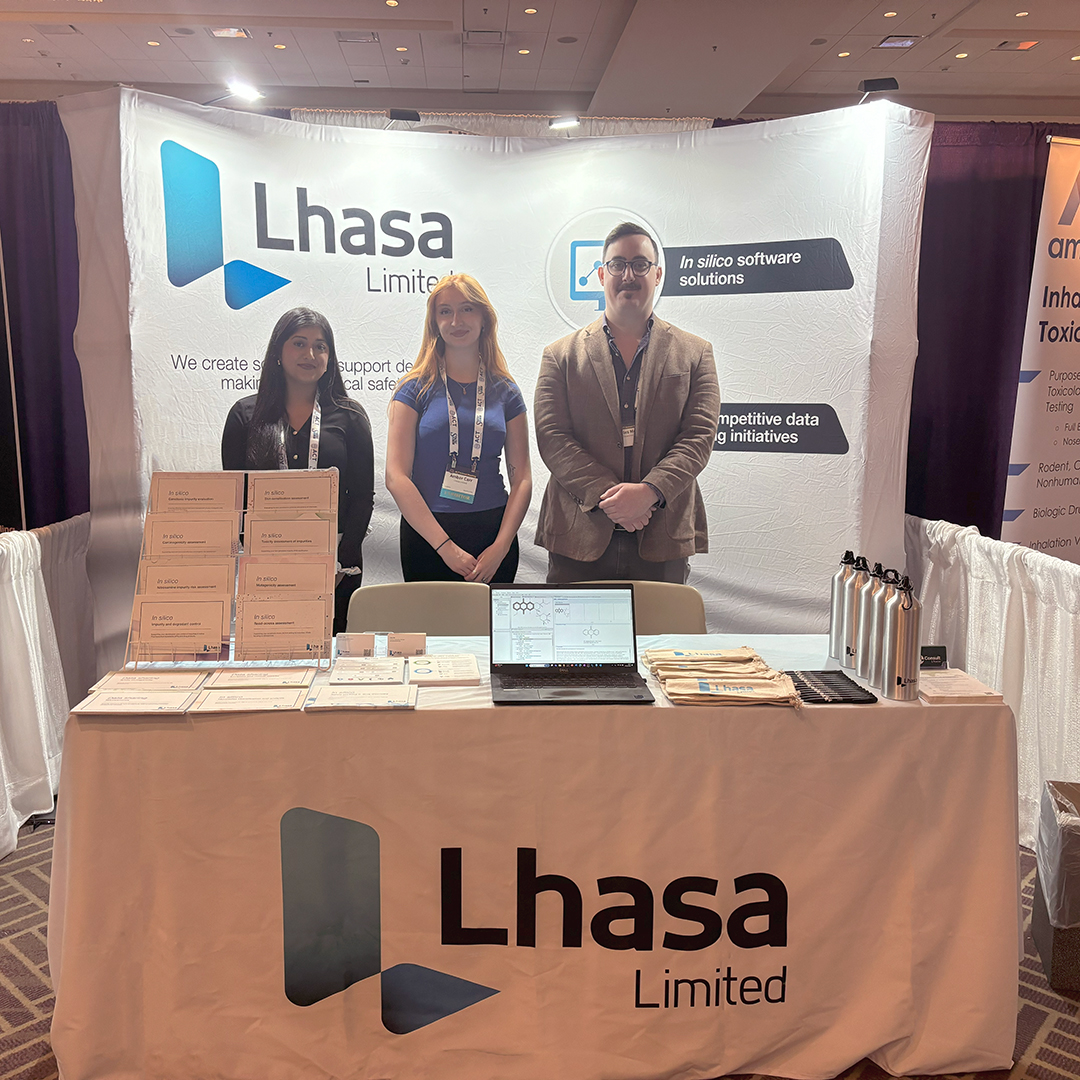
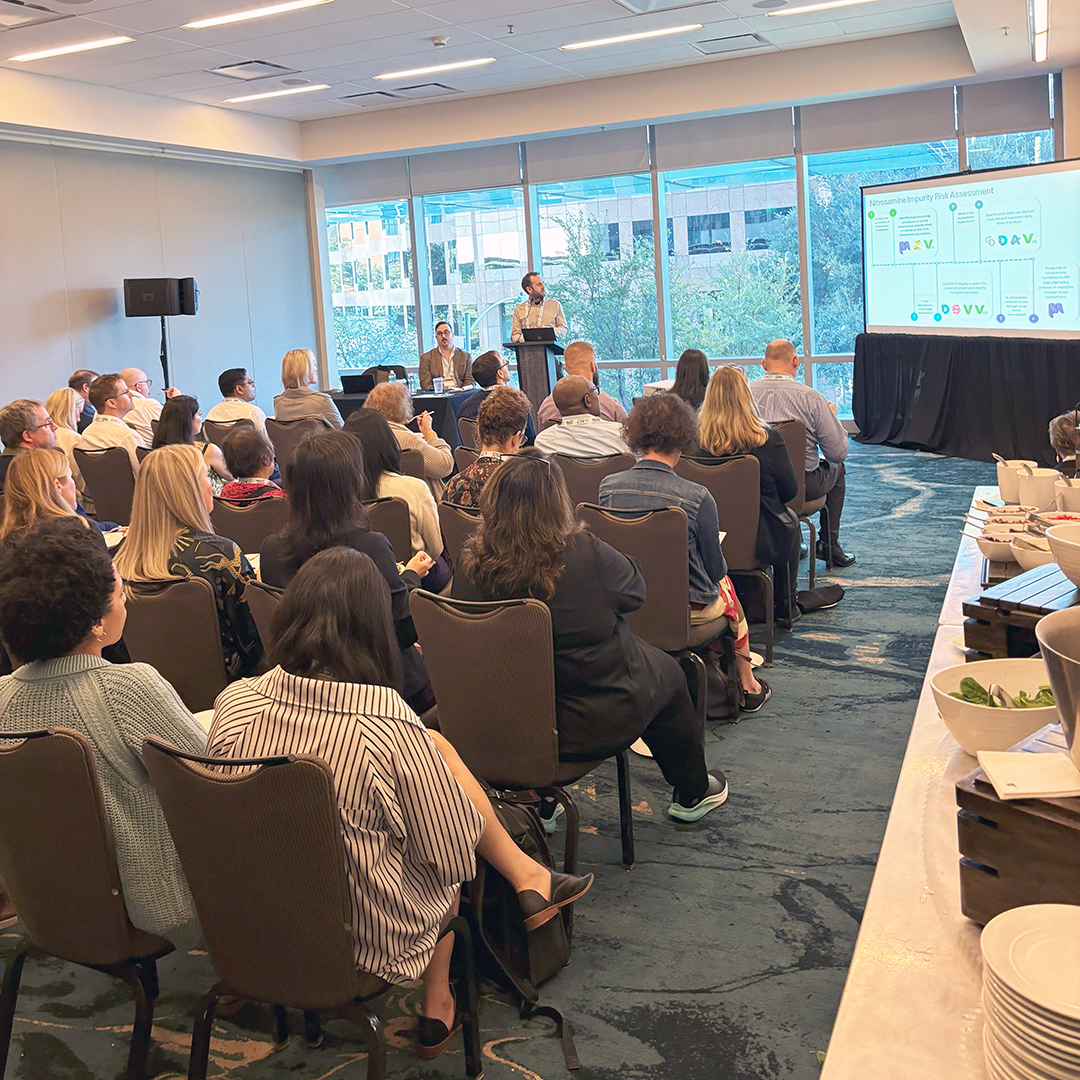

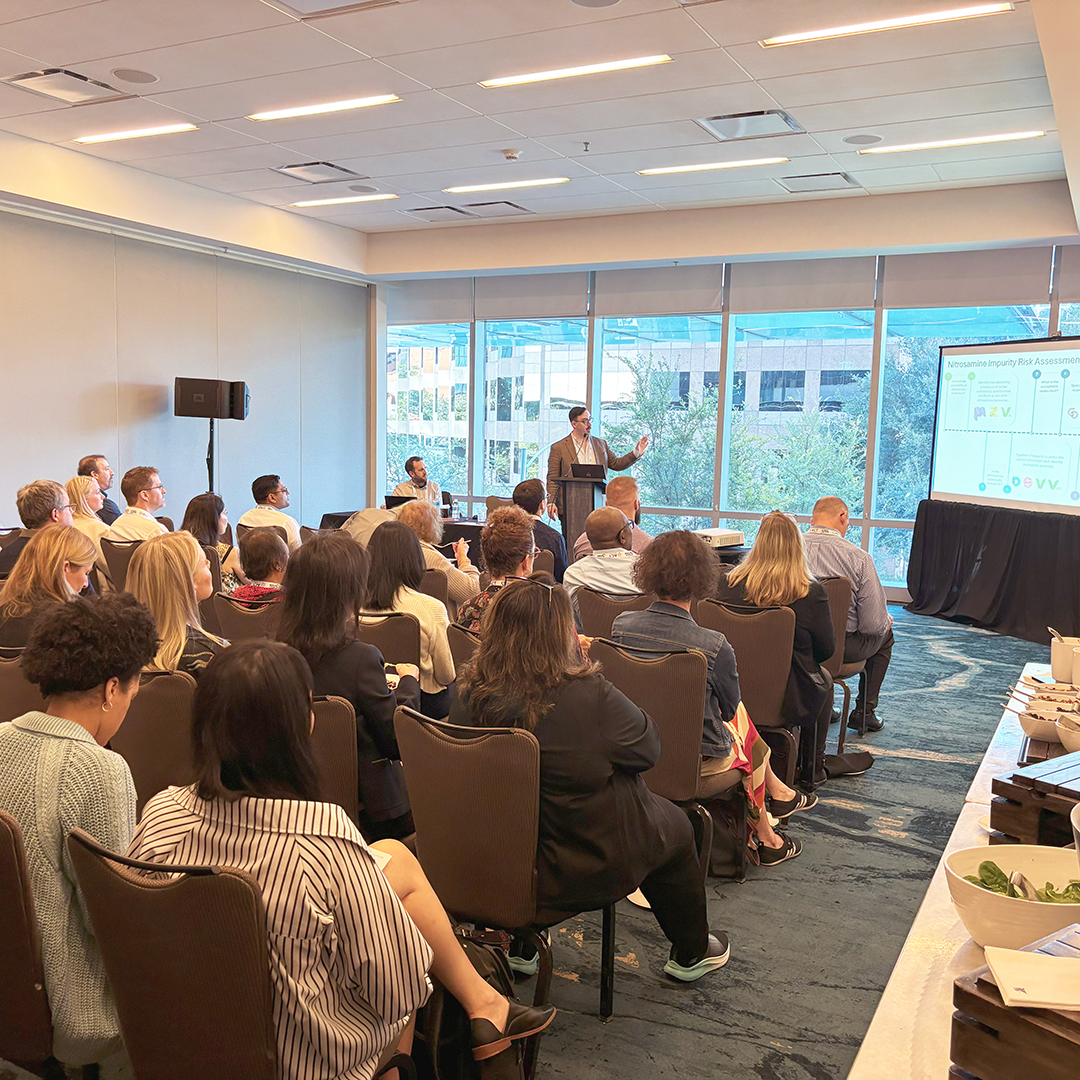

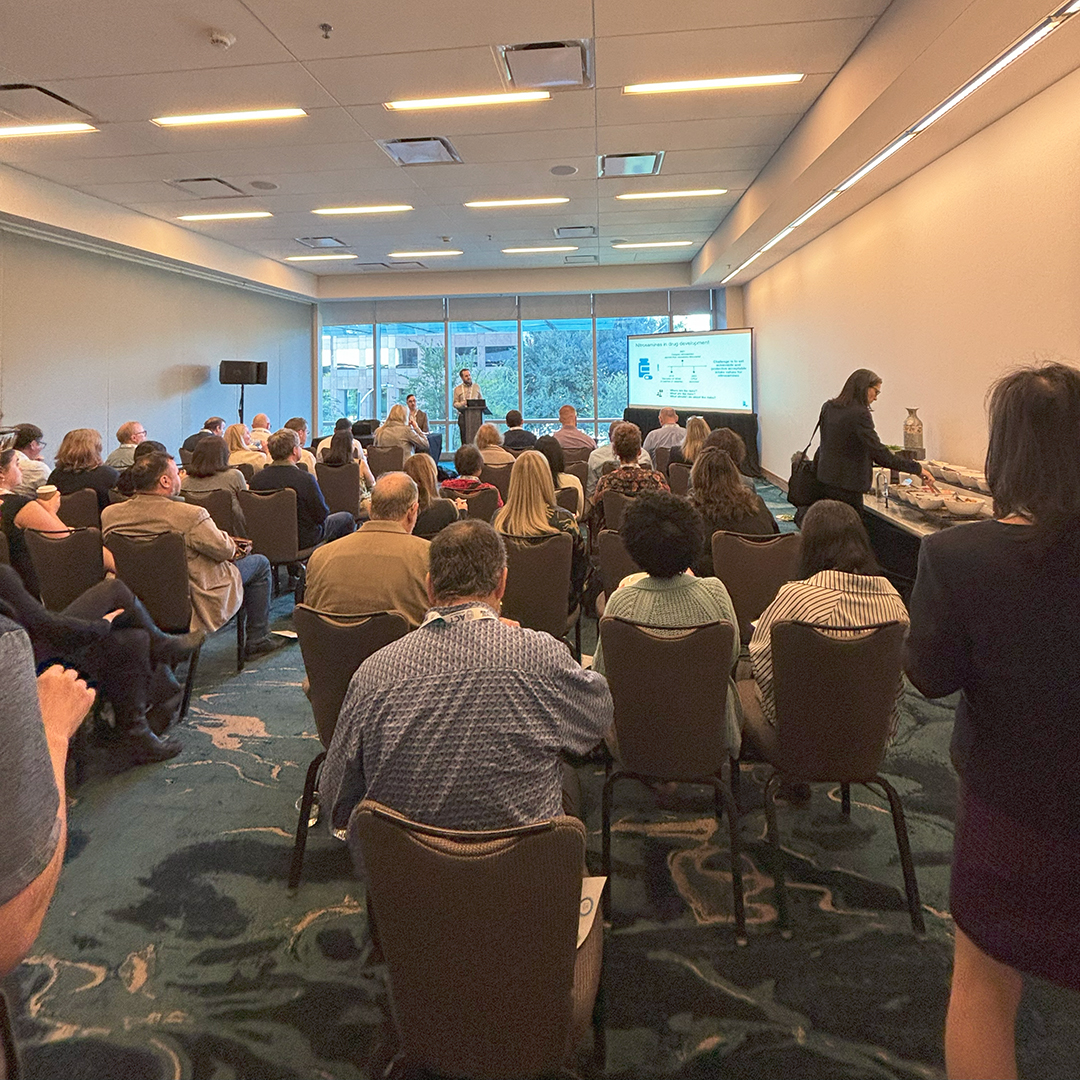
Scientific programme highlights
The conference featured several notable sessions aligned with Lhasa’s expertise and interests:
The “Tox Hack: Unleashing the Power of AI and Machine Learning” session showcased how AI technologies are revolutionising toxicology assessments in drug development. Discussions highlighted how analysing complex datasets can accelerate candidate identification and enable more cost-effective development through applications in safety screening, digital pathology, and SEND dataset analysis.
A session on non-genotoxic impurity assessment emphasised opportunities for greater harmonisation in assessment approaches. This aligns with Lhasa’s perspective that in silico solutions, including (Q)SARs and read-across tools like Acrostic, can strengthen decision-making processes and help establish robust safety limits while reducing reliance on experimental testing.
Other key topics included:
- Generative AI applications in toxicology and drug safety
- Management strategies for non-mutagenic pharmaceutical impurities
- Addressing mutagens and carcinogens in foods and drugs
Dr Adrian Fowkes, Director of Science at Lhasa, summarised the impact of ACT and our key takeaways from this year’s conference:
As one of the last big conferences of the year, ACT 2024 in Austin proved to be a hub for idea exchange. It was great to connect with members to hear how our solutions were enabling their decisions and exchanging ideas on new opportunities for in silico tools. The diversity of attendees at the conference also included regulators and in vitro assay developers and I further get the sense that tide continues to turn in favour of new approach methodologies. We must continue to pioneer to enable the reduction of animal testing, and in silico decision support systems such as Kaptis will continue to be pivotal in enabling weight-of-evidence assessments. I return to Lhasa HQ in Leeds energised to share the perspectives learnt with my colleagues to help drive new solutions and discuss progress at future conferences.
Dr Adrian Fowkes, Director of Science at Lhasa Limited
Let’s continue the conversation
Thank you to everyone who visited us at our booth and attended our exhibitor-hosted session. We look forward to staying connected and continuing the conversation!
If you would like to receive a personalised demonstration of our in silico solutions, schedule a post-ACT follow-up meeting with a member of our business partnerships team.
Last Updated on November 27, 2024 by lhasalimited

